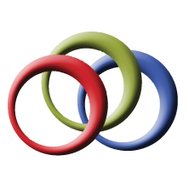
(View Complete Item Description)
College Success takes a fresh look at what it means, in today’s world, with today’s students, to be successful in college.Although many of the topics included—from study skills to personal health, from test-taking to managing time and money—will look familiar to those who have used student success texts that have been around for many editions, College Success takes a new approach. The focus is on realistic, practical tools for the students who need them. This is a book designed, frankly, for students who may have difficulty with traditional college texts. The style is direct and to the point. Information is presented concisely and as simply as possible. This is not a weighty tome that discusses student success—this is a manual for doing it.College student demographics have changed considerably in recent decades. More than a third of all students enroll not directly from high school but after a delay of some years. More students are working and have families. More students come from varied ethnic and cultural backgrounds. More students are the first in their family to attend college. More students have grown up with electronic media and now read and think in ways different from the previous generation. With these and so many other cultural changes, more students are not well prepared for a college education with the study skills and life skills they need to become successful students.For each student to get the most out of College Success and their college experience they must understand who they are as it relates to college. To that end, in every chapter students explore themselves, because success starts with recognizing your own strengths and weaknesses. Students make their own goals based on this self-assessment, determining what success in college really means for them as individuals. Interactive activities then help students learn the choices available to them and the possibilities for improving their skills. Skills are presented in step-by-step processes, tips for success in manageable highlighted displays. Most important, students always see the value of what they are reading—and how they can begin to apply it immediately in their own lives.College Success is intended for use in Freshmen Orientation, Study Skills or Student Success courses. A 2009 study revealed that currently nationwide, 34% of college freshmen do not return to their college for their sophomore year. This book is designed to help change that.
Material Type:
Reading,
Textbook
Author:
Anonyous




















